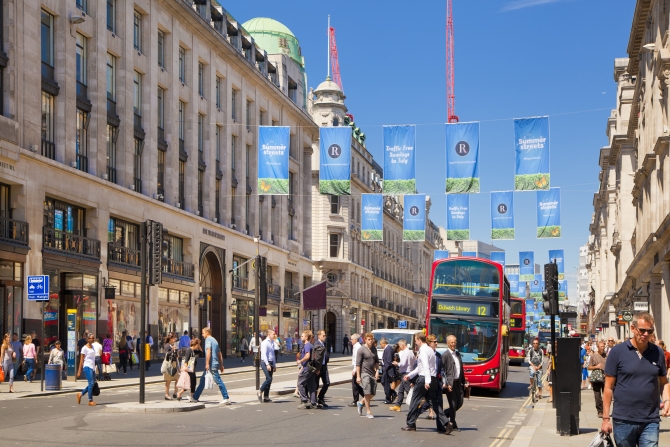West End retailers could be facing record business rates demands by 2017, one of Britain’s leading property service providers has warned.

According to new research by BNP Paribas Real Estate, businesses based in England will forced to pay rates bills based on half of the rental value of their properties — the highest yet levied.
Business rates — charged on commercial properties including offices and shops — are calculated according to a building’s rental value. The out-going Government postponed the 2015 re-evaluation to 2017, forcing businesses to pay a further two years of rates based at the peak of property values in 2008.
BNP predicts that following the 2017 re-evaluation, the Uniform Business Rate — the multiplier used to calculate ratepayers’ bills — will rise to a record 50p in the pound in England. That figure would net the future Government close to £26bn.
With the promise of business rates reform from all three major parties, the current system has long been blamed for the demise of Britain’s high streets and for putting extra strain on retailers already struggling with competition from online trading.
There would, the survey shows, be both winners and losers from the post 2017 re-evaluation. BNP claims that retailers in Leeds and Bristol, where property values fell during the recession, are likely to see their bills drop by 40 and 20 per cent respectively.
In London, Mayfair and other prime West End offices are also set to benefit with no change in their rental values since 2008. But retailers on Bond Street and Oxford Street, where values are at an all-time high, could face rises of 60 and 40 per cent.
And BNP warns that the re-evaluation looks set to force rent rises of up to 79 per cent on some King’s Cross office tenants.
Previous Post
Offices to Homes plan for Newcastle’s Regent Centre